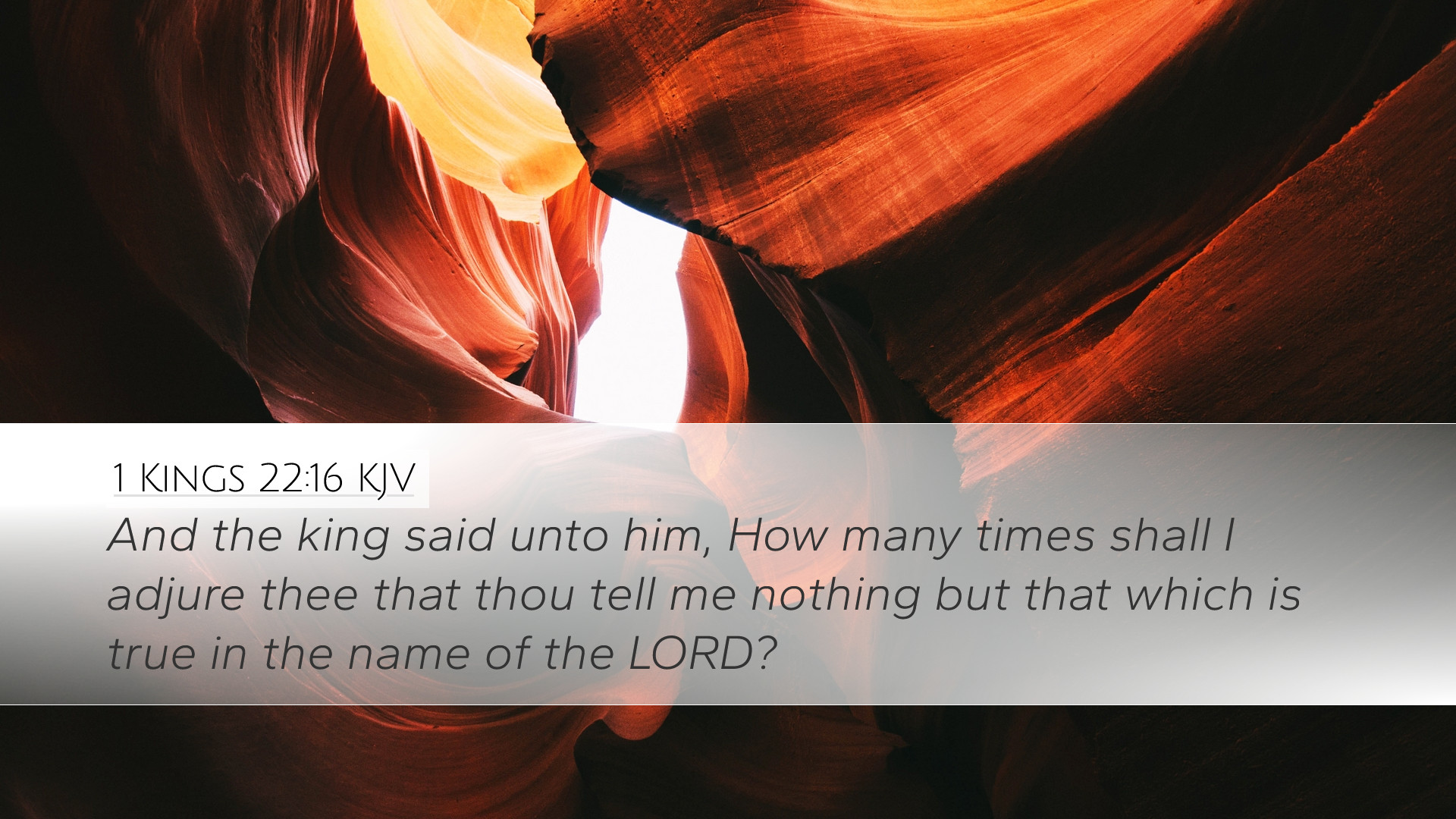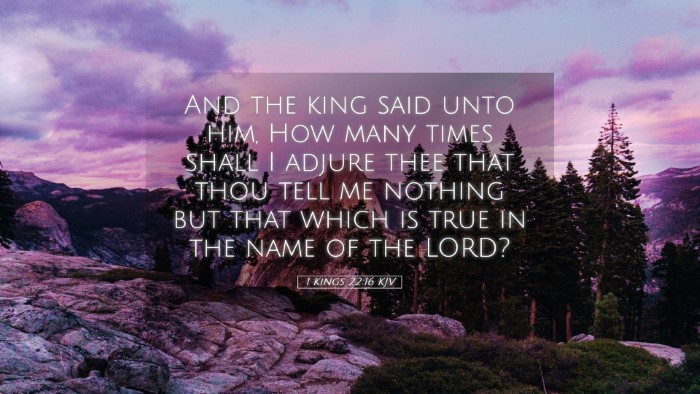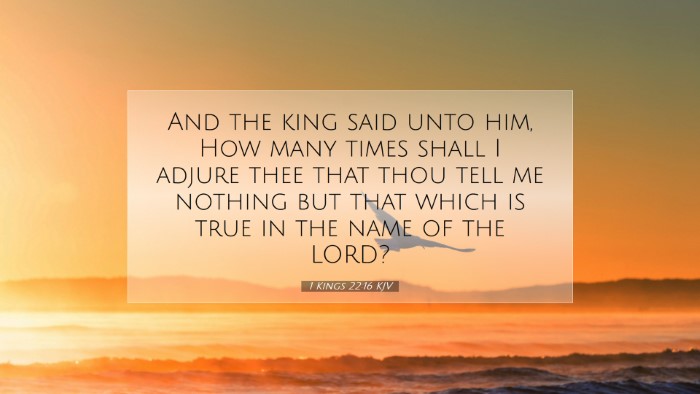Commentary on 1 Kings 22:16
Verse Text: "And the king said unto him, How many times shall I adjure thee that thou tell me nothing but that which is true in the name of the Lord?"
Introduction
This verse captures a key moment in the interaction between King Ahab of Israel and the prophet Micaiah. The context involves a crucial decision about going to war against Syria, revealing the tension between divine truth and human desire. The insights from various public domain commentaries illuminate the significance of this encounter, particularly the nature of prophecy and the responsibility of leaders to seek truth.
Contextual Analysis
Prior to this exchange, King Ahab sought the counsel of 400 prophets who were inclined to provide favorable predictions regarding the battle. However, their assurances lacked the authenticity expected from true prophets of God. Micaiah, known for his honesty, contrasts starkly with the previous prophets, underscoring a recurring theme in the Scriptures: the often-unwelcome truth of God's word.
Insights from Matthew Henry
Matthew Henry emphasizes the gravity of Ahab's attitude towards God's messages. He notes that Ahab, though often opposed to true prophecy, finds himself compelled to seek genuine counsel when faced with a significant decision. This moment highlights a crucial lesson: the importance of discernment in the counsel we seek, especially when it aligns with our own desires.
- Divine Accountability: Henry points out the responsibility of leaders to pursue and uphold the truth, as their choices have far-reaching consequences.
- Desire for Reassurance: Ahab's statement reflects a common human tendency to gravitate towards messages that validate personal desires rather than challenge them.
Insights from Albert Barnes
Albert Barnes provides a more theological exploration of the nature of prophetic revelation in this passage. He stresses that Micaiah's reluctance to prophesy initially indicates the weight of responsibility on prophets to convey God's words faithfully.
- Truthfulness in Prophecy: Barnes notes the tragic reality of misleading prophecies that often arise when men prioritize self-interest over divine truth.
- Importance of Faithfulness: The verse highlights how crucial it is for leaders to demand honest and truthful counsel, thus ensuring that their actions align with God's will.
Insights from Adam Clarke
Adam Clarke's commentary adds depth to the psychological and spiritual dimensions of this encounter. He considers Ahab's inner conflict as he grapples with the inevitability of Micaiah's truthful prophecy, sensing the doom that lies ahead for himself and his kingdom.
- Fear of the Truth: Clarke explains that Ahab's insistence on hearing the truth reflects a deep-seated fear of facing reality, indicative of a larger spiritual struggle.
- Prophecy and Consequence: Micaiah's honesty serves as a warning; unheeded, it leads to disastrous outcomes both personally and nationally, emphasizing the weight of prophetic declarations.
Theological Implications
The encounter between Ahab and Micaiah serves as a poignant reminder of the need for leaders, believers, and scholars alike to engage with the truth of God's word. It underscores the theological idea that God desires truth in the innermost parts (Psalm 51:6) and calls His people to live in alignment with His will.
- Role of the Prophet: This passage illustrates the prophetic role, highlighting the necessity for integrity in delivering God’s messages, irrespective of personal or societal pressure.
- Seeking Divine Guidance: The response of Ahab serves as a lesson on how to approach spiritual wisdom, emphasizing the need to filter our desires through prayerful consideration of God's truth.
Practical Applications
For pastors, students, and theologians, this commentary on 1 Kings 22:16 has several practical applications:
- Prioritize Truth-telling: When providing counsel, whether in spiritual or leadership contexts, emphasize the necessity of truth over comfort.
- Courageous Leadership: Encourage leaders to be courageous in their decisions, even when the truth is difficult or unpopular.
- Engagement with Prophetic Voices: Recognize the value of hearing from true prophetic voices in our communities, which might challenge prevailing narratives.
Conclusion
1 Kings 22:16 presents a pivotal exchange laden with theological depth, ethical considerations, and practical wisdom. It serves as a powerful reminder to pursue truth relentlessly, particularly in times of decision-making, and to respect the weight of prophetic insight within the church and broader society.


